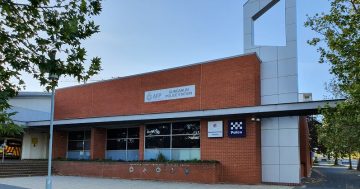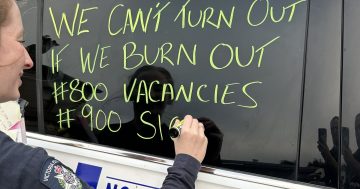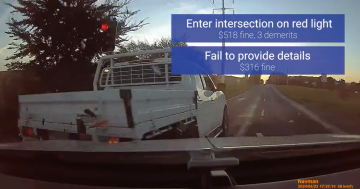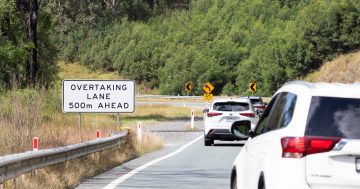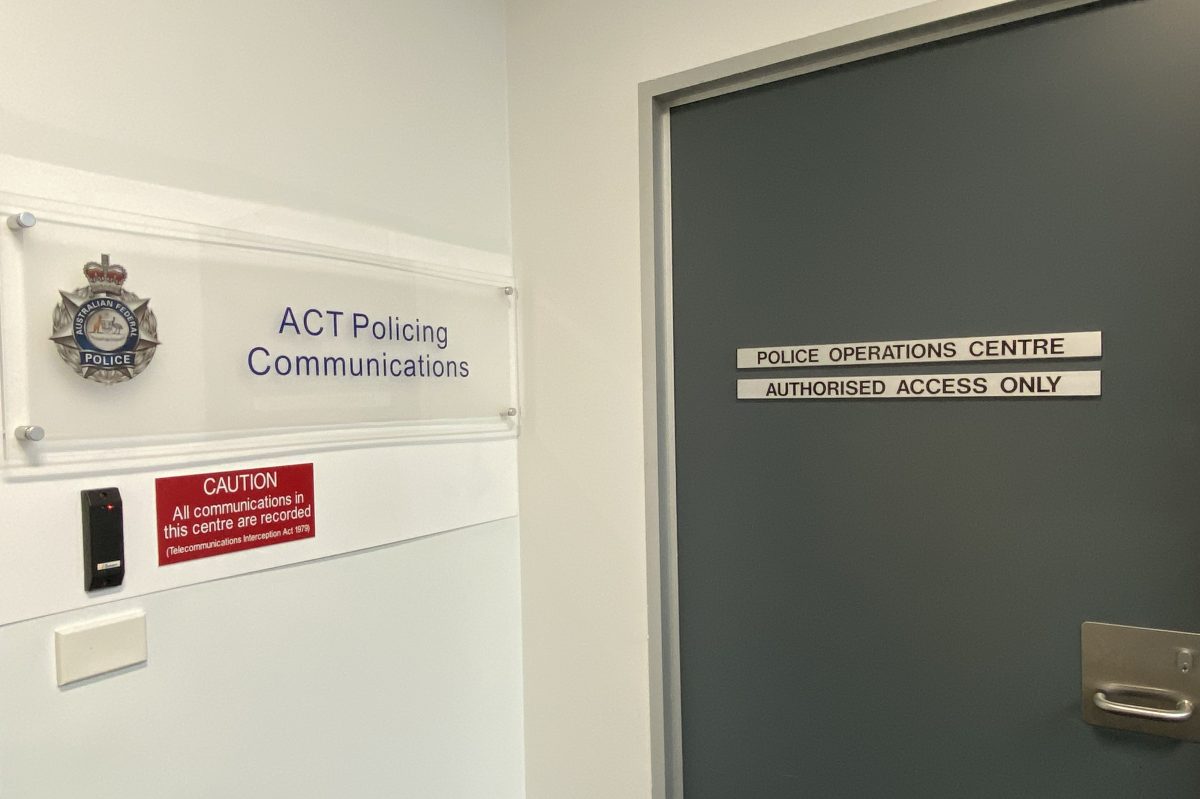
Whether you called Triple Zero (000) or the Police Assistance Line (131 444), your call will be answered here. Photo: Claire Fenwicke.
Have you ever felt so outraged that your food delivery turned up late or cold that you thought you’d better call the police? Well, some Canberra residents have.
ACT Policing says nearly 40 per cent of Triple Zero calls made to police last year were ‘non-emergencies’.
Like the call from a 13-year-old girl who wanted police to arrest her parents because they turned the wi-fi off.
A university student called to ask for his professor’s number because he wouldn’t be able to hand in an assignment on time, while a man asked police to arrest a stray cat on his street because he believed it was a “menace to society”.
Police received calls about food deliveries being late or cold, being swooped by a magpie, a landlord not letting a tenant use air-conditioning and a house key being broken in a door lock.
There was also a teenager who wanted police to take her to her school formal, a woman who said there was a lizard in her backyard and a man whose windscreen fogged up while he was driving.
An ACT Policing spokesperson said more than 39,000 calls were made to police on Triple Zero in 2024.
Of these, 36 per cent, or over 14,000, were non-emergency calls, like the swooping magpie or menacing cat mentioned above.
As a result, ACT Policing is urging the community to consider what their incident involves. If immediate police presence is not required, they should call the non-urgent police assistance line on 131 444 and not Triple Zero.
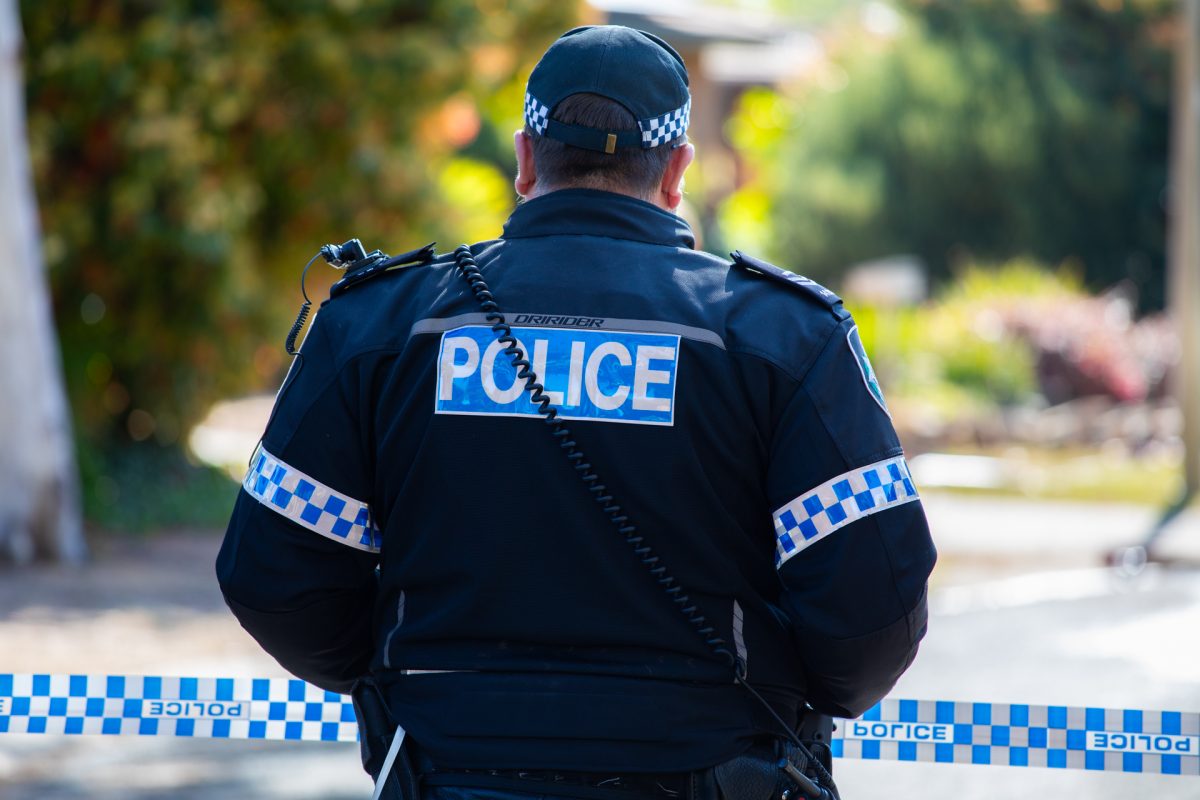
Police received many non-emergency calls to Triple Zero last year. Photo: Michelle Kroll.
“The majority of all calls police receive should go to 131 444,” the police spokesperson said.
“Inappropriate use of the Triple Zero number can potentially delay the response to those in genuine need, such as those who are in a life-threatening situation.
“While a small number of calls to Triple Zero are honest mistakes, police are concerned that people continue to dial Triple Zero when they shouldn’t.”
The police spokesperson said 150,452 calls were made to 131 444 last year.
The top events police were dispatched to between January and November 2024 were suspicious or wanted persons, traffic incidents, welfare or premises checks, disturbances, suspicious or wanted vehicles, traffic-targeting, thefts, community policing and routine assistance.
Australian Federal Police Association president Alex Caruana said his association was concerned that 36 per cent of calls made to Triple Zero were “not legitimate uses of this life-saving service”.
“Triple Zero should only be called in life-threatening emergencies or situations requiring an urgent response from police, fire, or ambulance services. Remember, these first responders are prepared to risk their own safety to reach you swiftly and provide assistance,” he said.
“ACT Policing has limited resources, and the number of lines to Triple Zero is finite.
“It’s astonishing that some people misuse this critical service for trivial matters, such as being swooped by a magpie or reporting a stray cat in the street.”
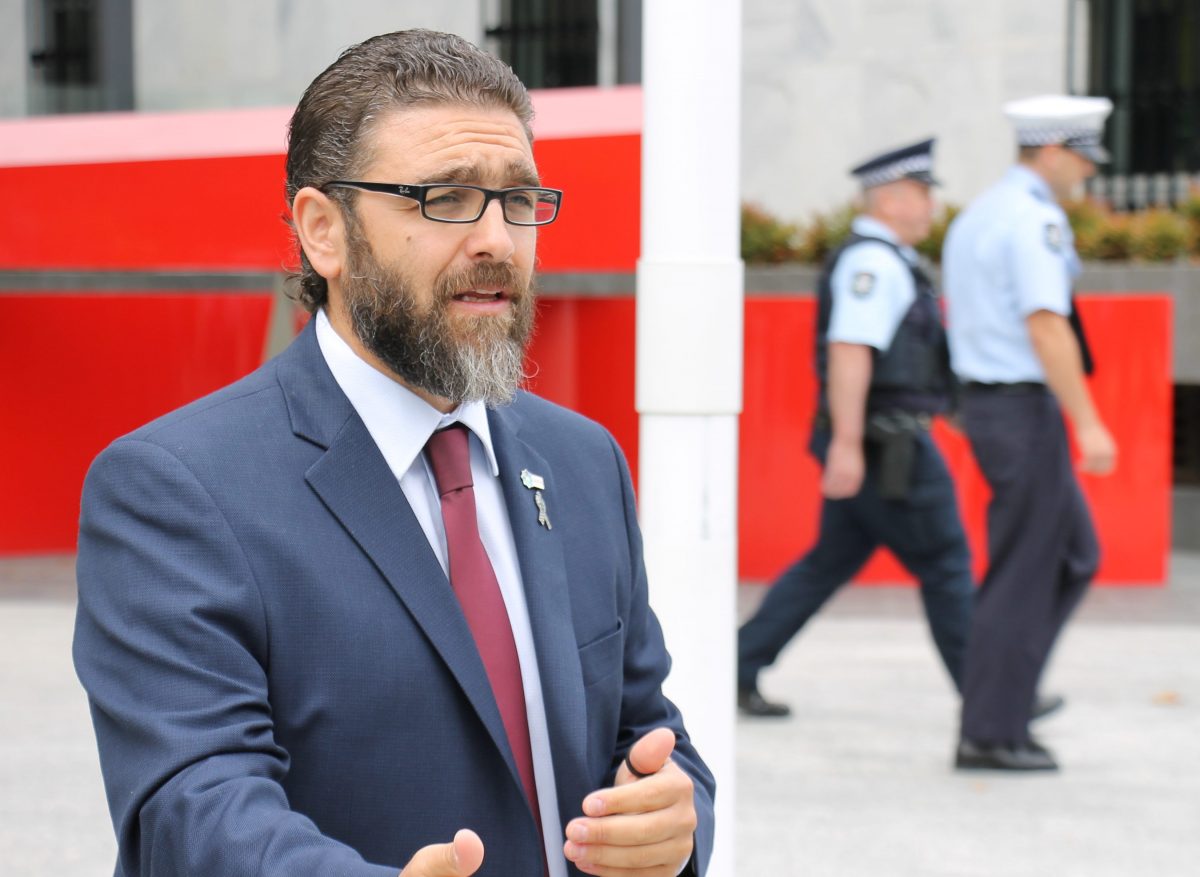
Australian Federal Police Association president Alex Caruana says it’s “astonishing” that some people use the Triple Zero service for trivial matters. Photo: Albert McKnight.
Mr Caruana said the ACT has the lowest number of police officers per 100,000 population in Australia, which continues to put pressure on the ACT Policing workforce.
“Already having to deal with excessive workloads, the last thing the hard-working officers and unsworn appointees in ACT Policing should have to deal with is inappropriate or nuisance phone calls to a life-saving function,” he said.
“Imagine if it was your family member who was delayed in contacting Triple Zero for a legitimate life-or-death situation due to someone else tying up the service because of a slow delivery for a takeaway meal.”
Original Article published by Albert McKnight on Riotact.




